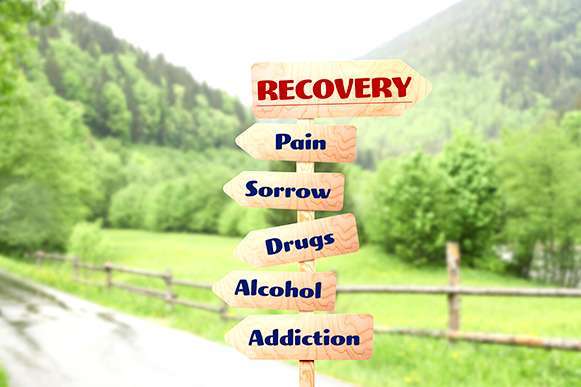All About Drug-free Life
All About Drug-free Life
Blog Article
Drug-free Life - Questions
Table of ContentsAll about Drug-free LifeHow Drug-free Life can Save You Time, Stress, and Money.The 30-Second Trick For Drug-free LifeThe Drug-free Life PDFsThe 7-Second Trick For Drug-free LifeThe 3-Minute Rule for Drug-free Life
This post will explore various sorts of rehab, levels of dependency treatment, what to anticipate from treatment, and exactly how to locate the appropriate dependency treatment program. There are various degrees of dependency therapy. When needed to take care of withdrawal from materials such as opioids, alcohol, and sedating medications such as benzodiazepines, treatment starts with clinical detoxification.Upon conclusion of treatment, an aftercare plan will be devised that consists of regression prevention tools and other means of post-treatment support. Figuring out the best therapy strategy is an integral part of recouping from addiction. 1 One factor taken into consideration in addiction therapy is the level of care an individual might require or profit the most from.
The Drug-free Life Statements
Risky use the material. Pharmacological phenomenon related to the material (i.e., substance resistance; compound withdrawal). As shown by the numerous potential levels of care described by the ASAM, dependency therapy is considered as a complex procedure that involves many approaches of treatment and treatment. 8 Cleansing is typically one of the initial healing treatments used in the healing process.
3 For alcohol and certain various other substances, clinical detoxification might be needed to make sure risk-free physical recuperation and can be potentially lifesaving in some instances. 3 Three vital parts of lots of specialist detoxification programs consist of:3 Preliminary analysis. Medical and psychosocial stablizing. Drug-Free Life. Promoting person preparedness for the following action in dependency therapy.
8 Cultivating person preparedness involves helping the person plan for follow-up treatment to address material use. 3 Concepts of ideal treatment practices advise that detoxification facility team proactively attach clients to continuous therapy to promote sustained abstinence. 10 Inpatient or domestic therapy settings provide perpetual treatment and recuperation support. 1 Patients of inpatient/residential programs can remain at the facility for days to months relying on their requirements.
The 10-Minute Rule for Drug-free Life
1 Homeowners may live in an inpatient setting for the size marked to them according to their treatment strategy. 1 Once an individual and assistance helpful site staff agree that adequate treatment progression is being made, clients might sometimes fall to a fairly less see extensive level of treatment like outpatient treatment to continue their recuperation.
Patients can live in the house or in other non-clinical settings beyond treatment hours, which might contain several sessions a week and after that lower regularity as progression is made. 1 There are a number of kinds of outpatient programs, with varying degree of intensity of services and time dedication. Conventional outpatient solutions may include conference with an individual therapist, getting medication monitoring, or getting involved in group treatment.
The Only Guide for Drug-free Life
3 Sober living homes are an additional option for support in addiction therapy. These homes are created to support a sober way of life by offering a safe, secure atmosphere with zero tolerance for compound use. 13 A home of this kind is commonly considered a transitional living environment as it bridges the space between intensive treatment and the isolation that can happen when formal solutions are no more needed.
14 Transitional homes may imply having a flatmate or housemates who additionally wish to strengthen their sobriety with the accountability the home society offers. Having the connections of others in the same community is a reliable and typically crucial part of long-lasting recuperation. Citizens of sober living homes might remain to join therapy, groups, and medicine management as well as attend 12-Step conferences and other assistances in their neighborhood.
Support teams can provide connections to community-based sources and use a system you can check here of peer support at little to no cost. 16 Some assistance groups are ladies- or men-only or have a spiritual and spiritual focus.
Little Known Questions About Drug-free Life.

Upon admission, a person may first participate in a first examination and consumption before (or consistent with) beginning the clinical cleansing procedure. Throughout the intake phase, a personalized therapy strategy may be created to customize to the client's certain requirements and educate the direction of therapy - Drug-Free Life.
To maintain the strides made during therapy, a period of recovery may be adhered to by an aftercare program that prepares the individual for maintaining long-lasting recovery. Speaking to an admissions navigator at American Dependency Centers (AAC) can be handy, giving detailed guidance while looking for treatment, from verifying insurance protection to preparing travel.
Little Known Facts About Drug-free Life.

Report this page